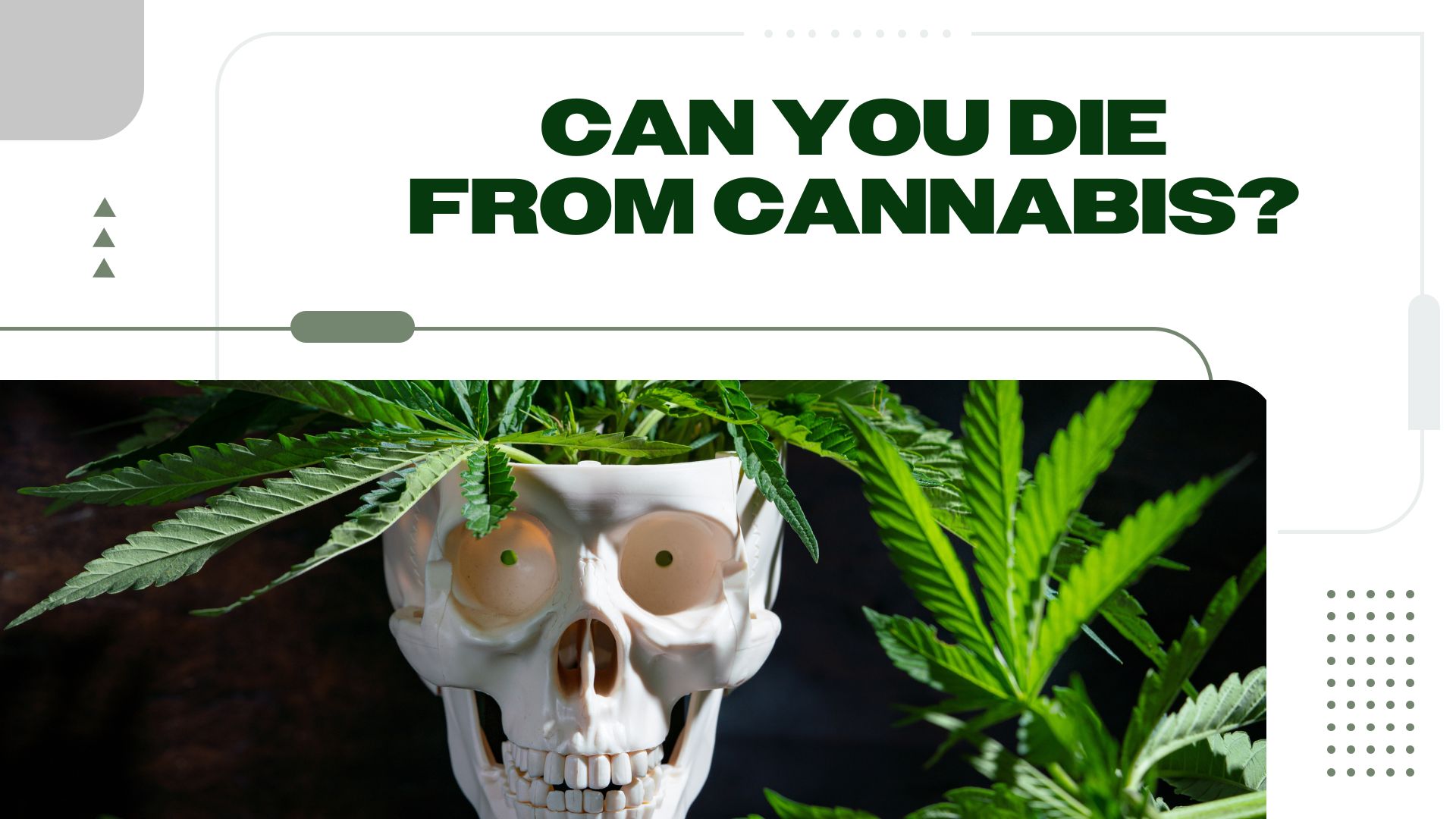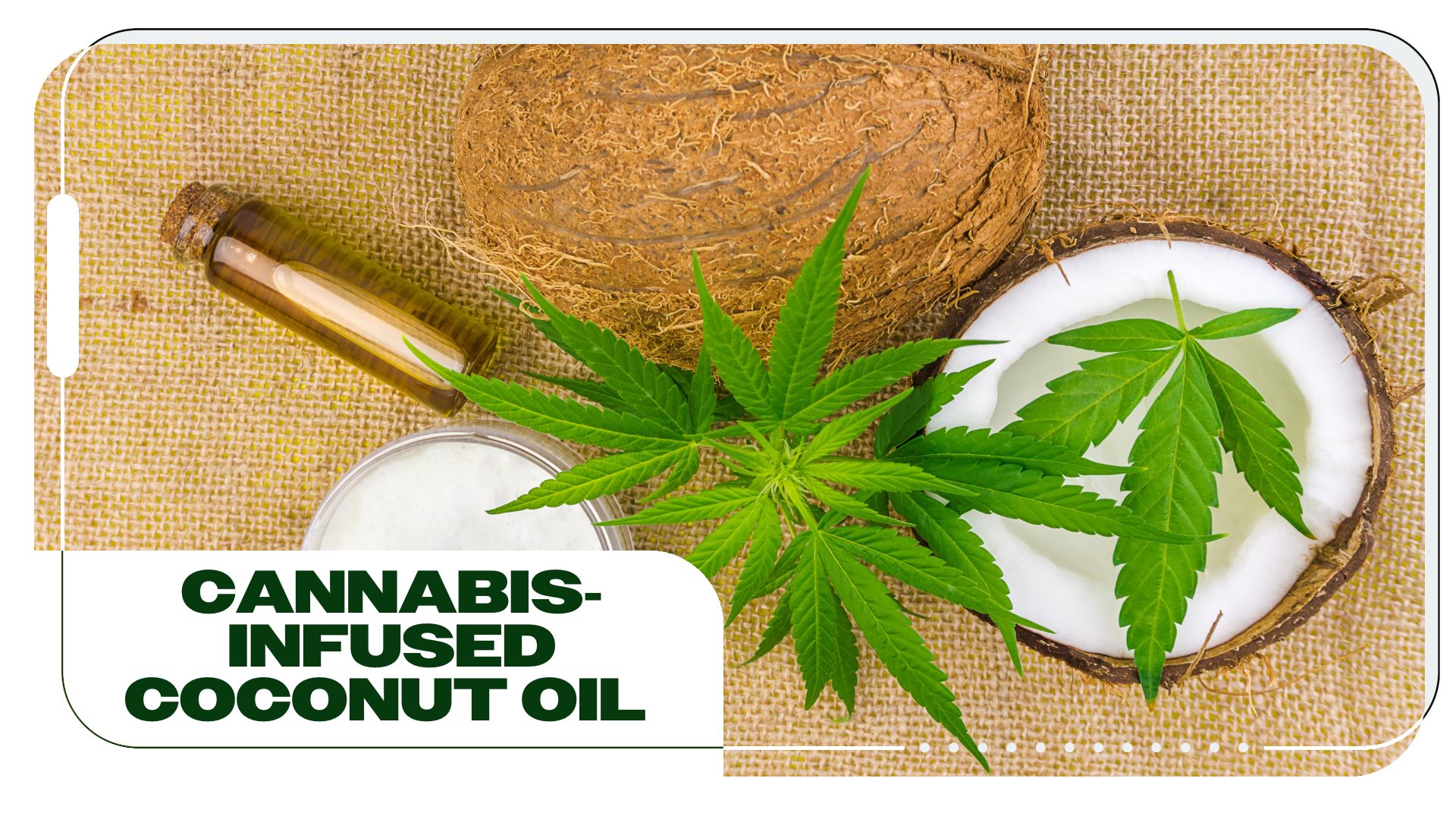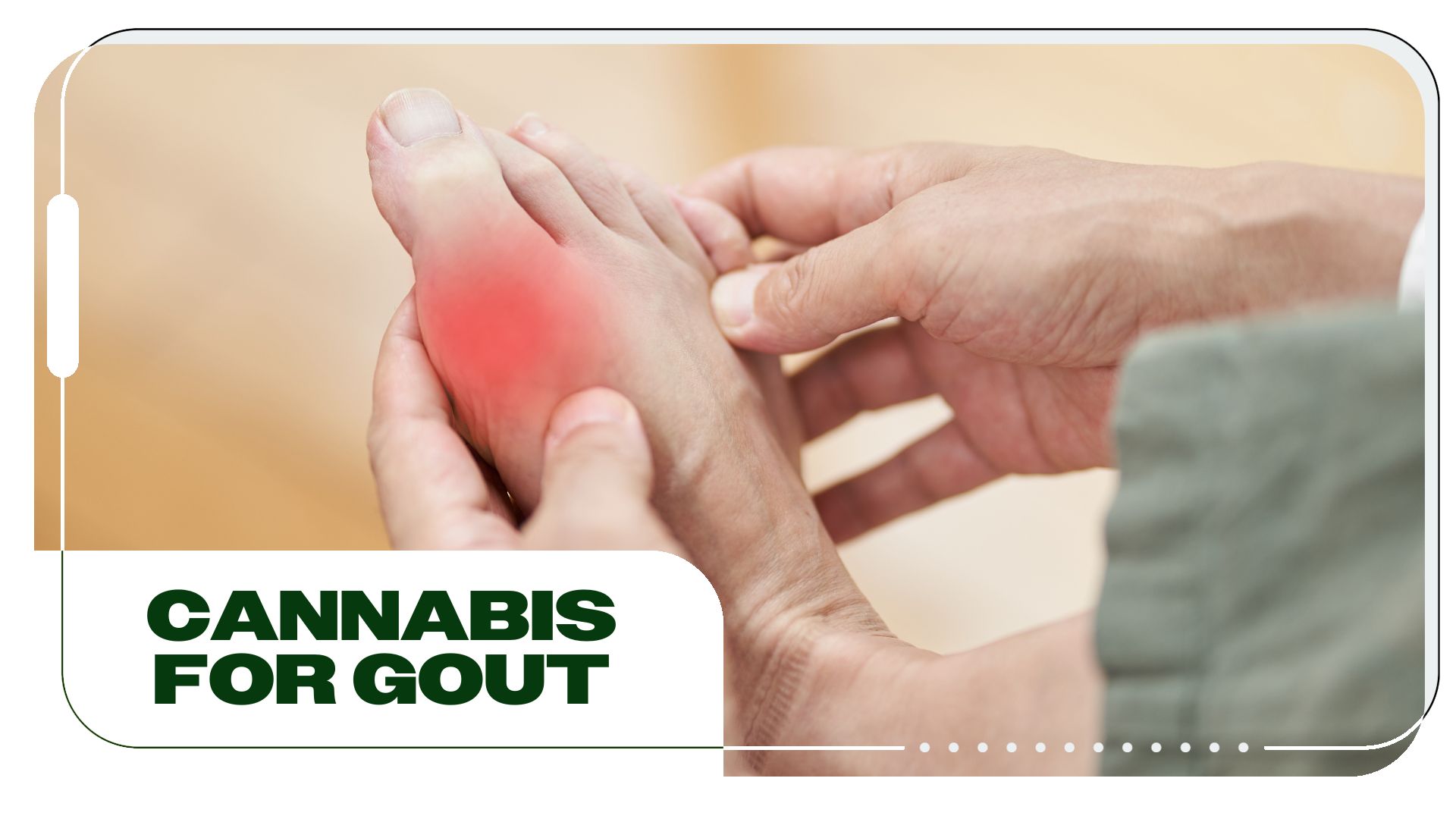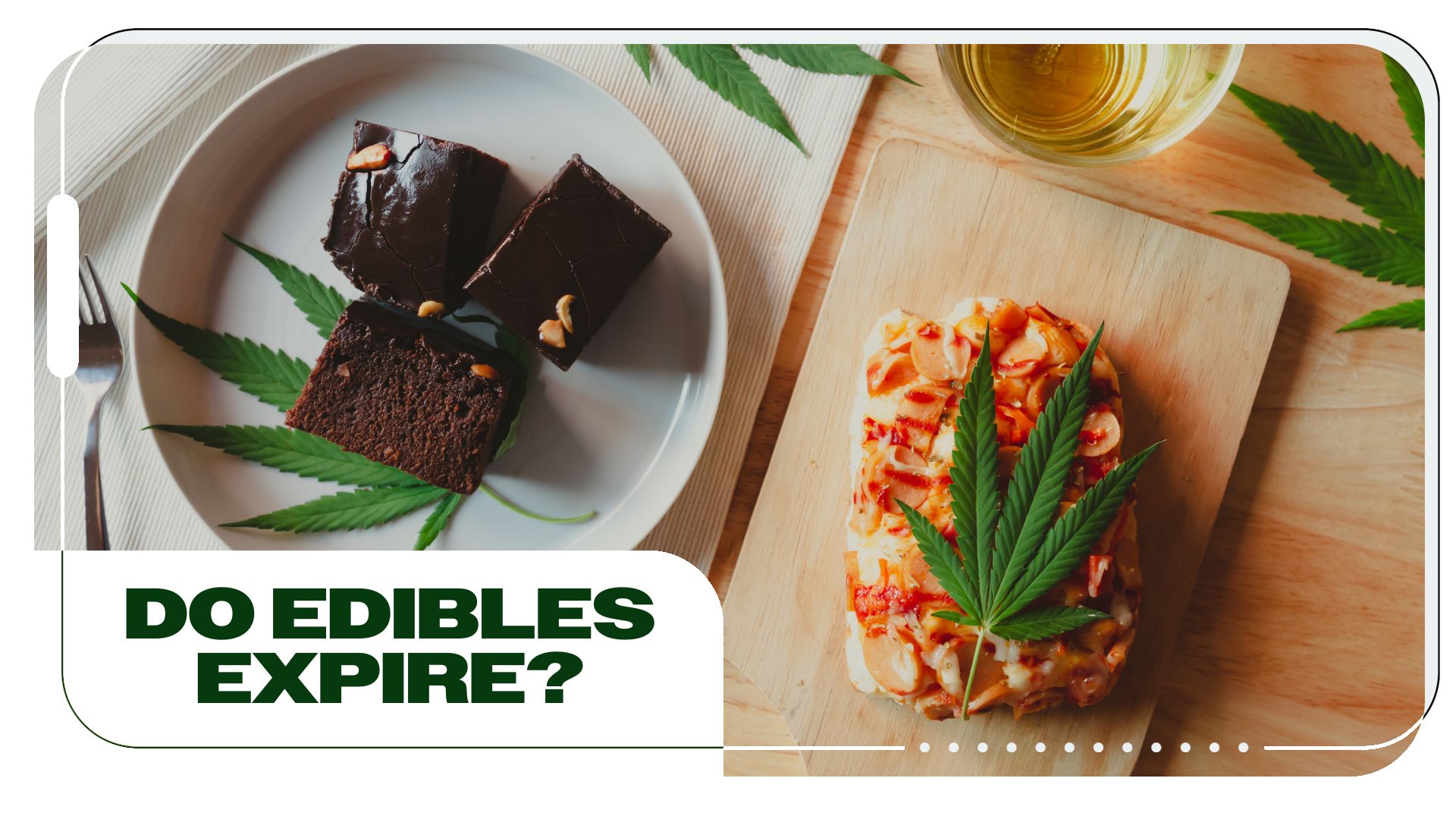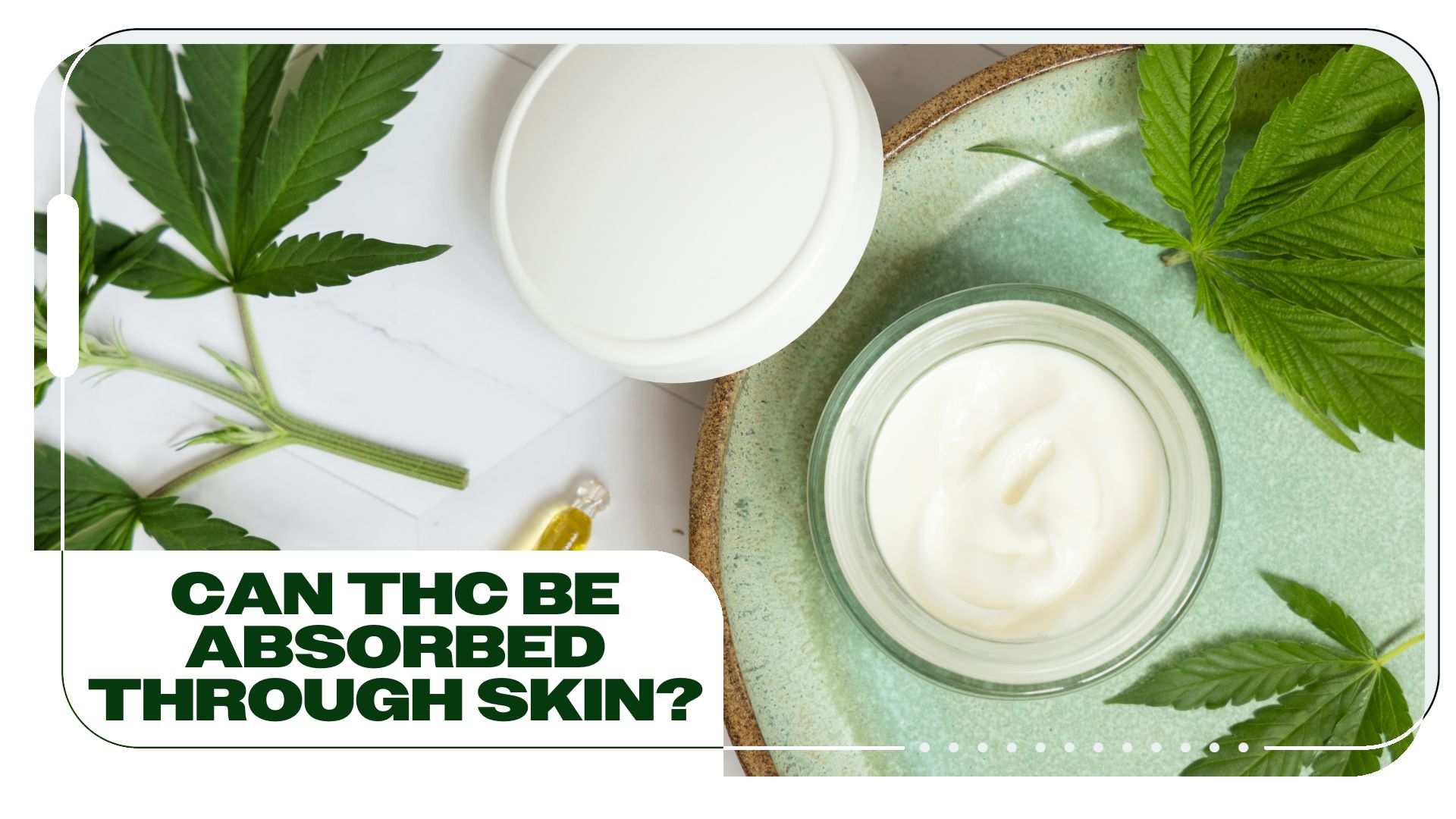Cannabis is more popular than ever, but even among fans, there’s a burning question: Can you die from cannabis? With a historic legacy rooted in so much misinformation, it’s time to get the facts straight once and for all.
In this article, we’ll explore whether cannabis can be lethal, dive into the science behind its effects, and clear up some common myths. So, let’s take a look at what the latest research shows about the potential lethality of the world’s most famous plant.
Understanding Cannabis and Its Effects
Cannabis is a plant composed of more than 100 different cannabinoids. However, it has two very well-known cannabinoids that most are familiar with: THC and CBD. THC, or tetrahydrocannabinol, is the ingredient that makes you feel high, giving you that euphoric sensation. CBD, or cannabidiol, is known for its calming, healing effects without the high – and it can even counter THC’s psychotropic effects.
Current research shows that both of these compounds have many possible health benefits. For example, THC can help with pain, stress, PTSD, and insomnia, while research shows CBD can reduce anxiety, inflammation, and even help with some types of epilepsy.
When you use cannabis, it interacts with your body’s endocannabinoid system. This innate system helps regulate things like mood, appetite, sleep, pain, and nausea. The cannabinoids in cannabis bind to ‘lock-and-key’ style receptors in this system in different areas and strengths.
Balancing Good vs. Adverse Effects Depends on Dose
Cannabinoids’ influence on our ECS creates the various effects and is the reason cannabis has been so popular for millennia. Many people use cannabis because it can make them feel happy and relaxed, or even give their creative inspiration a boost. Some enjoy the heightened sensory perception, while others appreciate the deep sense of relaxation it provides.
However, cannabinoids have biphasic effects and common but temporary side effects. Biphasic means that they behave differently at low versus high doses; the latter is more likely to produce physical side effects (i.e. fast heart rate, dry mouth and eyes, dizziness, etc.) and psychiatric side effects (i.e. anxiety, panic).
One of the most common uses of cannabinoids is for controlling nausea and vomiting. However, excess THC or other CB1 activators (i.e. delta-8, THCP) taken at high doses or too frequently over time can cause a serious, paradoxical vomiting and a prolonged vomiting syndrome known as cannabinoid hyperemesis syndrome. If not treated promptly, the side effects of dehydration from CHS (or any condition causing serious dehydration) could be lethal, rather than the cannabinoids themselves.
How Much Cannabis Would It Take to Die?
According to 2022 research published in the Journal of Psychopharmacology, studies show that there are no known fatal doses of cannabis, making it one of the safest substances available. In other words, this means it would be nearly impossible to consume enough cannabis at once to be directly dangerous.
In addition, evidence shows that cannabis is one of the least toxic substances compared to fully legal substances like alcohol and nicotine. For example, the CDC reports that excessive alcohol drinking results in approximately 178,000 deaths annually in the United States.
Why You Should Get Your Medical Marijuana Card
Veriheal has satisfied millions of patients nationwide by giving them access to these benefits
- Larger purchase limits
- Peace of mind
- Enhanced legal protection
- Access to higher potency strains
- Save up to 25% on cannabis purchases
- Skip the line at the dispensary
Furthermore, the National Institute on Alcohol Abuse and Alcoholism reports that of those 178,000 deaths, around 120,000 of those are men and 59,000 are women. This makes alcohol one of the top preventable causes of death in the country, following tobacco, poor diet and physical inactivity, and other illegal drugs. Interestingly, there’s even research to suggest that CBD may be a strong ally in the fight against the detrimental effects associated with alcoholism.
Unlike alcohol poisoning, which can happen from drinking too much too quickly, or nicotine poisoning from consuming too much tobacco (which is actually quite easy to do with today’s vape-obsessed society), no directly toxic nor fatal doses of cannabis are documented despite what fearmongering propaganda may suggest.
When it comes to prescription drugs, especially opioids, cannabis is being used to treat many of the same conditions that opioids are prescribed for, such as chronic pain. For some people, cannabis can be a healthier alternative to opioids, offering pain relief without the high risk of addiction and overdose. This is because there are no CB1 receptors in our breathing centers, unlike opioid receptors that cause respiratory depression.
Safe Cannabis Use Practices
Using cannabis safely and responsibly can make your experience more enjoyable. Here are some tips to help. First, start with a low dose, or ‘microdose’, especially if you’re new to cannabis. This can help you avoid ‘greening out’ and feeling too high or uncomfortable too fast.
Of course, the safety profile of cannabinoids requires you to be responsible and not drive, operate heavy machinery, or perform potentially dangerous stunts while impaired. These actions may lead to secondary, serious, or potentially fatal consequences. If you have uncontrolled vomiting after ingesting cannabinoids, seek local emergency medical services to prevent dehydration and its potentially serious or fatal side effects.
Plus, there are many ways to consume cannabis, like smoking, vaping, edibles, and oils. Try different methods to see what works best for you, but always start slow. Understanding your personal tolerance and the dosing differences in route potency are important. Everyone’s body reacts differently, so pay attention to how you feel and adjust your use accordingly.
Final Thoughts
Whether you can die from cannabis reveals much about the misconceptions surrounding this plant. While it’s important to understand the effects and use cannabis responsibly, the clear evidence shows that it is one of the safest substances when compared to others.
Cannabis itself may result in common but temporary and non-serious side effects. It is directly non-fatal, but you must also assume responsibility for your actions while impaired. Uncontrolled vomiting from excess cannabis needs to be treated promptly to prevent secondary side effects of dehydration, which may be caused by a number of conditions like CHS and is fatal if untreated.
Embracing accurate information and debunking myths allows for a more informed and balanced view of cannabis. Whether for medical use or personal enjoyment, understanding the science and practicing safe use can lead to a positive experience.
Note: The content on this page is for informational purposes only and is not intended to be professional medical advice. Do not attempt to self-diagnose or prescribe treatment based on the information provided. Always consult a physician before making any decision on the treatment of a medical condition.
Author, Share & Comments


